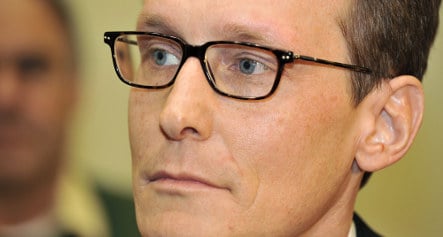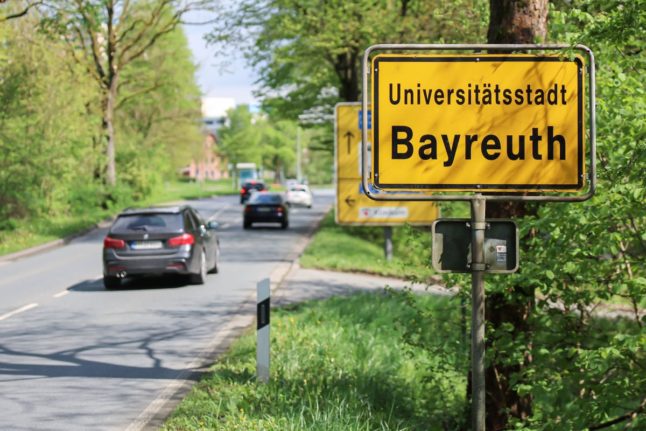Helg Sgarbi, 44, admitted as his trial opened in Munich “the essence” of
the charges against him, which included trying to hoodwink Klatten out of €340 million ($430 million).
“I would like to apologise publicly to my victims,” the inconspicuous-looking Sgarbi told the packed courtroom.
He was accused of trying to defraud Klatten with sob stories, promises of a new life together and finally threats to release compromising video footage of their steamy affair.
Prosecutors had called for a jail term of nine years, saying his confession should be counted in his favour since it would mean that Klatten and the other women would be spared the embarrassing ordeal of having to testify.
His defence lawyer Egon Geis – who in the past has taken on several high-profile cases, including that of Hitler “diaries” forger Konrad Paul Kujau in the 1980s – called for five years.
Klatten, 46, is the daughter of the late Herbert Quandt, the German industrialist who saved BMW from collapse in 1957 and built the Bavarian carmaker into a world auto power.
Sgarbi, who told his conquests he was a “special Swiss government representative in crisis zones”, first met her while hunting for rich, lonely women at the exclusive Austrian health resort of Lanserhof in July 2007.
At first the married mother-of-three spurned Sgarbi’s advances but began an affair when the smooth-talking Sgarbi turned up unexpectedly in the south of France where she was on holiday the following month.
Later in August 2007 they met in a Holiday Inn hotel in Munich – where Klatten believed she would not run the risk of bumping into any acquaintances – for an “intimate” encounter that Sgarbi secretly filmed, according to the charges.
In September they met at the same hotel and this time Sgarbi allegedly said that he needed €10 million because he had injured a little girl in a car crash in Florida – asking Klatten to lend him a cool €7 million.
Klatten swallowed his story, handing over the sum in the underground garage of the Holiday Inn in a cardboard box containing several plastic folders each with a thousand €500 banknotes.
Sgarbi then told the 46-year-old to leave her husband and put into a trust fund €290 million to fund their new life together. Klatten baulked, and ended the relationship.
But then Sgarbi turned nasty, according to prosecutors, threatening to send compromising video footage of the two together to the press and to her husband, among others.
This time he allegedly demanded €49 million, which he subsequently reduced to €14 million, and set a deadline of January 15 last year. But she had long since informed the police, and Sgarbi was arrested. She was not Sgarbi’s only alleged victim, and the Klatten affair has prompted several others to come out of the woodwork.
According to German magazine Stern, he first came to the attention of the authorities in Geneva in 2001 because his “fiancee,” one Countess Verena du Pasquier-Geubels – 50 years his senior – had gone to the police.
According to the list of charges against him, he spun a similar line with each of his victims, saying he needed millions of euros because he had injured a child in a road accident or claiming to have video footage of their steamy encounters.
Before Monday’s hearing began, a spokesman for the Munich prosecutors’ office told news channel NTV that Sgarbi faced a prison sentence of several years but that he could expect some leniency if he were to plead guilty.
“If he makes a confession, if he spares his victims from having to appear here in public, he will get a corresponding reduction … in his sentence,” Anton Winkler said.



 Please whitelist us to continue reading.
Please whitelist us to continue reading.